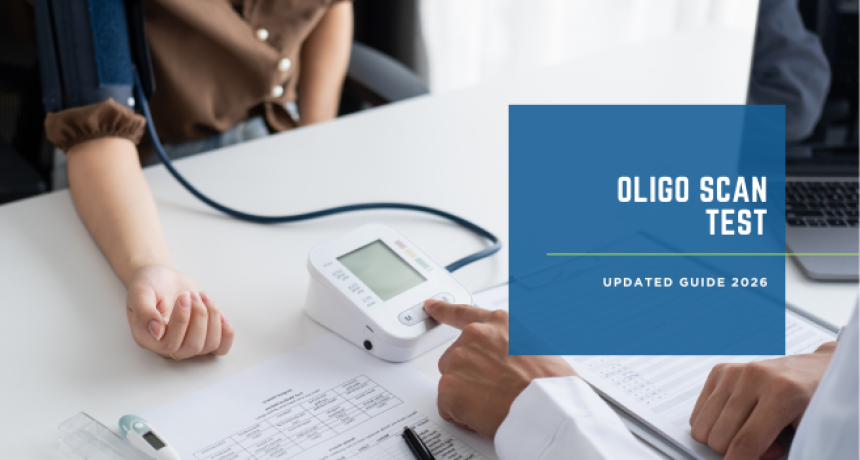Understanding Gas Pains in Chest: What You Need to Know
2025-04-19 Doctor-Guided Natural Relief Chest pain caused by gas can feel alarming — many people mistake it for heart pain. Fortunately, trapped gas in the chest is usually harmless and can be relieved with simple home remedies. In this guide, we’ll explain what causes gas pain in the chest, how to identify it, and safe home remedies to get fast relief. ⚠️ Disclaimer: This article is for informational purposes only and does not replace professional medical advice. If you have severe, sudden, or persistent chest pain, seek emergency medical help immediately. Let’s break down how gas causes chest pain, how to tell the difference from heart issues, and what you can do about it—naturally. Gas can get trapped in the digestive system and create pressure in the upper abdomen, which sometimes radiates into the chest. Common causes include: Swallowing excess air (eating too quickly, chewing gum). High-fiber or gas-forming foods (beans, cabbage, carbonated drinks). Indigestion or acid reflux. Food intolerances (lactose, gluten). Stress and anxiety (which slow down digestion). Gas-related chest pain is usually different from heart-related pain. Typical symptoms include: Sharp, cramp-like pain under the ribs. Bloating or fullness in the upper abdomen. Relief after passing gas or burping. Pain that changes with body position. ⚠️ Seek medical attention immediately if you have: chest tightness with sweating, dizziness, or pain spreading to the left arm/jaw — these may be signs of a heart attack. Gas-Related Chest Pain vs. Heart Attack: Key Differences ⚠️ Important: If you're unsure, always seek immediate medical attention. Better safe than sorry. Indigestion – Due to overeating, spicy or fatty foods. Irritable Bowel Syndrome (IBS) – Often associated with gas, loose motion, and abdominal cramping. Lactose Intolerance – Undigested dairy can ferment and cause excess gas. Food Poisoning or Dysentery – Infections leading to inflammation, gas, bloating, and loose motion. These conditions ay also result in bloating and loose motions, or even watery stool with gas. Here are safe, effective ways to relieve trapped wind in the chest: Place a warm towel or heating pad over the chest or upper abdomen. Heat relaxes muscles and helps gas move through the digestive tract. Ginger contains compounds that reduce bloating and improve digestion. Boil fresh ginger slices in hot water, add honey, and sip slowly. Peppermint relaxes digestive muscles and helps trapped gas escape. Avoid if you have acid reflux, as it can worsen heartburn. Try light walking or yoga poses like Child’s Pose or Knee-to-Chest Stretch. Movement helps release trapped wind naturally. Mix 1 tablespoon in warm water before meals to support digestion. Avoid if you have ulcers or acid reflux. Reduce intake of carbonated drinks, beans, and spicy foods. Eat smaller meals to prevent overloading the stomach. Eat slowly and chew thoroughly. Avoid drinking through straws (reduces swallowed air). Manage stress with breathing exercises or meditation. Keep a food diary to track foods that cause gas. At L&B Clinic, we recommend safe, proven natural solutions for relieving gas, bloating, and related symptoms like loose motion or dysentery. These remedies are particularly helpful if you are experiencing gas and loose motion together: How to use: Why it works: Recipe: Effect: Preparation: Benefit: Directions: Why it’s helpful: Instructions: When to use: Eat Slowly: Chewing well prevents excess air from entering the digestive tract. Limit Carbonated Beverages: These increase internal pressure and may worsen gas and loose motions in sensitive individuals. Avoid Trigger Foods: Beans, cruciferous vegetables, dairy, fried food. Take Probiotics: Balance your gut flora and avoid loose motion or indigestion. Manage Stress: Practice yoga, deep breathing, or mindfulness—especially if you tend to get nervous or anxious. Consult a doctor if: Gas pain is frequent or severe. You experience unexplained weight loss, nausea, or vomiting. Gas pain is accompanied by chest tightness, dizziness, or radiating pain. If you have gas, bloating, and loose motion, it might indicate: Food poisoning Viral gastroenteritis IBS Dysentery In such cases, don’t suppress symptoms with OTC pills. Instead, try home remedies for loose motion, including: Banana and curd Sabudana (tapioca) water Rice gruel (kanji) Coconut water with lemon Ginger-honey mix These act as gentle yet effective loose motion cures, helping your body detox, heal, and balance itself. When to Visit L&B Clinic? Seek medical advice if: Gas pain persists for more than 24 hours You have chronic loose motion or dysentery There’s chest pressure with dizziness or sweating Natural remedies aren’t working At L&B Clinic, we specialize in integrative gastrointestinal care. Our doctors assess not just your symptoms, but the root cause—be it gut flora imbalance, stress, food sensitivities, or chronic inflammation—and create personalized nutrition + treatment plans, that indicates issues like gas and loose motion, bloating and loose motions, watery stool with gas from the inside out. Yes, trapped gas in the upper digestive tract can create pressure and pain that
mimics heart-related discomfort. However, always rule out cardiac causes first. Some effective home remedies for loose motion and gas include ginger-honey mix, buttermilk with hing, pomegranate peel tea, and rice kanji Gas-related chest pain usually comes with bloating, burping, or loose motion and improves after passing gas. Heart-related pain feels more pressing and doesn’t go away with digestion. Yes, home remedies for dysentery like tulsi-ginger water and sabudana can reduce intestinal inflammation and ease gas buildup that causes chest discomfort. A combination of banana-curd and jeera water is a safe, doctor-backed loose motion remedy that also relieves gas and supports digestion.What Causes Gas Pain in the Chest?
Symptoms of Trapped Gas in the Chest
Common Digestive Triggers Behind Gas-Induced Chest Pain
Home Remedies for Gas Pain in the Chest
1. Warm Compress or Heating Pad
2. Ginger Tea
3. Peppermint Tea or Oil Capsules
4. Gentle Movement
5. Apple Cider Vinegar (Diluted)
6. Avoid Trigger Foods
Prevention Tips
Doctor-Backed Natural Remedies On How To Relieve Gas Pain In Chest
1. Ajwain and Black Salt Water
Boil ½ tsp ajwain (carom seeds) with a pinch of black salt in a cup of water. Drink after meals.
Carom seeds contain thymol which improves digestion and relieves trapped gas, easing pain that may lead to bloating and loose motion.2. Jeera (Cumin) Water
Boil 1 tsp cumin seeds in water for 5 minutes. Cool, strain, and drink twice a day.
Reduces bloating, acidity, and helps balance gut function. A great option if your gas is linked to loose motion or IBS.3. Ginger-Tulsi Concoction
Crush a few tulsi leaves and mix with ginger juice. Add to hot water and sip.
Soothes intestinal inflammation and clears gas buildup. Also helpful in dysentery and digestive infections.4. Buttermilk with Hing (Asafoetida)
Mix ½ tsp hing into a glass of buttermilk and drink after meals.
Combats fermentation in the gut and supports a healthy gut lining. Also acts as a mild loose motion cure, particularly effective when gas and loose motion appear together.5. Pomegranate Peel Decoction (for Gas + Loose Motion)
Boil dried pomegranate peels in 2 cups of water until reduced to half. Strain and drink twice daily.
Ideal for gas accompanied by loose motion or dysentery. It calms inflammation and binds the stool naturally.L&B Tip: How to Prevent Gas Chest Pain
When to See a Doctor
What if Gas Is Accompanied by Loose Motions?
FAQs: Chest Pain, Gas & Loose Motion Remedies
Q1.Can gas really cause chest pain that feels like a heart attack?
Q2.What home remedies help with gas and loose motion together?
Q3.How do I know if my chest pain is from gas or a serious condition?
Q4.Is dysentery linked to gas and chest pressure?
Q5.What’s the best loose motion remedy when also experiencing gas and acidity?
Q6. How to relieve gas pain in chest immediately?
Try sipping warm water, walking gently, or applying a heating pad. These can quickly release trapped wind in the chest.
Q7. How to release trapped wind in chest naturally?
Yoga poses like Knee-to-Chest or herbal teas like ginger and peppermint are effective.
Q8. What is the best home remedy for chest pain due to gas?
Ginger tea and a warm compress are safe and commonly used remedies.
Q9. When should I worry about chest pain from gas?
If your chest pain is sudden, severe, or comes with sweating, dizziness, or radiating pain, seek emergency medical help.
Final Word from L&B Clinic
Chest pain caused by gas might feel intense—but it doesn’t have to control your life. With the right guidance, safe home remedies for loose motion, and stress-reducing lifestyle shifts, you can take back control of your digestive health.
Visit L&B Clinic in Delhi for doctor-led, natural care that goes beyond quick fixes—and works with your body, not against it.
.png)















